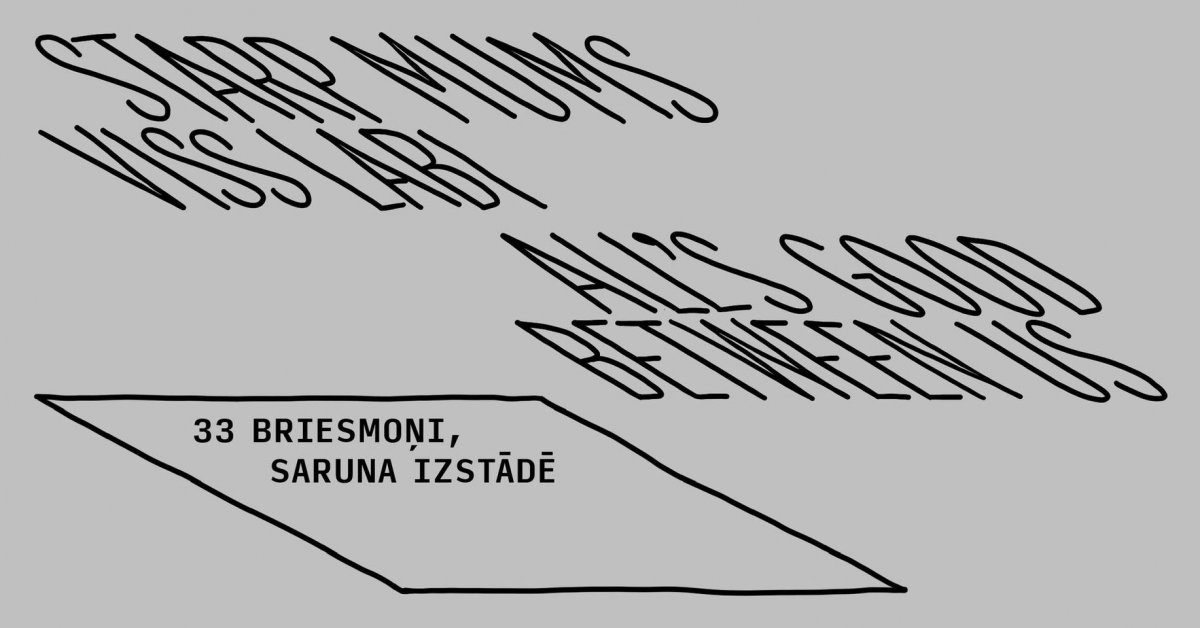
LCCA invites to the events of the public programme of the exhibition "All's Good Between Us"! On 19 March at 18.00 at the exhibition site Dzirnavu Street 60A-21 visitors are invited to attend a discussion and engage in a conversation "Thirty-three monsters".
Thirty-Three Monsters by Lydia Zinovieva-Annibal (1866-1907) is a novel in diary form, first published in 1907 in St Petersburg, but banned due to the fact that it was the first lesbian novel in Russia. The text was published as a bilingual English-Russian edition in 2022 with illustrations by the artists Eleonore de Montesquiou and Varvara Toropkova.
To reflect on the making of the book today and Lidiya Zinovieva-Annibal's text within the broader framework of questions of identity, sexuality and emancipation in the past and today, the conversation will feature artist Eleonore de Montesquiou and cultural historian and researcher Deniss Hanovs, as well as historian Jenny Zinovievff.
“Thirty-Three Monsters” by Lydia Zinovieva-Annibal the first work of Russian literature to deal openly with the theme of lesbianism and critiques the objectifying male gaze. is a young woman’s intimate diary. It is written to another woman, Vera, her lover. Vera is older than the narrator and forces her to sit for 33 male painters who will paint 33 versions of her body, the 33 monsters. Vera initiated this search for truth, the exposure of her lover’s beauty to men and to art.
Born in St Petersburg into an aristocratic family, Zinovieva-Annibal was a rebel and nonconformist throughout her life and in her work. She was an emblematic figure of symbolist circles in Petersburg in the early 1900s. With Viatcheslav Ivanov, her second husband Lydia organised the famous Wednesday meetings in their home the „Tower“ where Petersburg intellectuals and artists of the Silver Age gathered at the turn of the century. Lydia Zinovieva died of scarlet fever at the age of 41, shortly after the “Thirty-Three Monsters”.
Eleonore de Montesquiou is French-Estonian, she was born in 1970 in Paris. Her work revolves around the articulation between private and official histories, personal and national identities. It tackles the intricacies and ambiguities of living in the margins, based on her personal experience of uprootedness. Eleonore is primarily working with film, she tapes testimonies, creating prosthetic memories of repressed histories. In her documentary-informed works, her camera becomes the voice of these voiceless people. Her work is based on a documentary approach, translated into films, drawings, and texts; it deals mainly with issues of integration/ immigration/ meaning of a nation in Estonia. Since 2007, she has filmed women living in the Estonian-Russian border town of Narva: “Na Grane”, in 2016, she started working with asylum seekers from French-speaking countries in Estonia: “Hope is no home” while pursuing a long-time film project in France with peasants in the Haute-Alpes: “Traverses”.
Dr. art. Deniss Hanovs, (1977) wrote his PhD. On cultural practices of Latvian national movement in Latvian media of the 19th century and since then (2003) teaches at various universities in Latvia and abroad. Since 2021 he is a professor at the Latvian Art Academy. He is also DJ and created series of talks on integration issues in Russian language radio Baltkom (Kultprosvet) and also a series of stories dedicated to the development of European opera history of the 18th century.
Jenny Zinovieff lives in Cambridge UK and worked for twenty years building up the alumni relations programme for the university. She was married, also for twenty years, to composer and musician Peter Zinovieff and began researching the history of the Zinovieff family, finding writings by ancestors going back to 1601. She translated private memoirs by Leo Alexandrovich (Peter’s grandfather) and his father Alexander Dmitrievich, which led in turn to the life and work of his sister, Lydia, her 33 Monsters and a collaboration with Eléonore, another direct descendant.